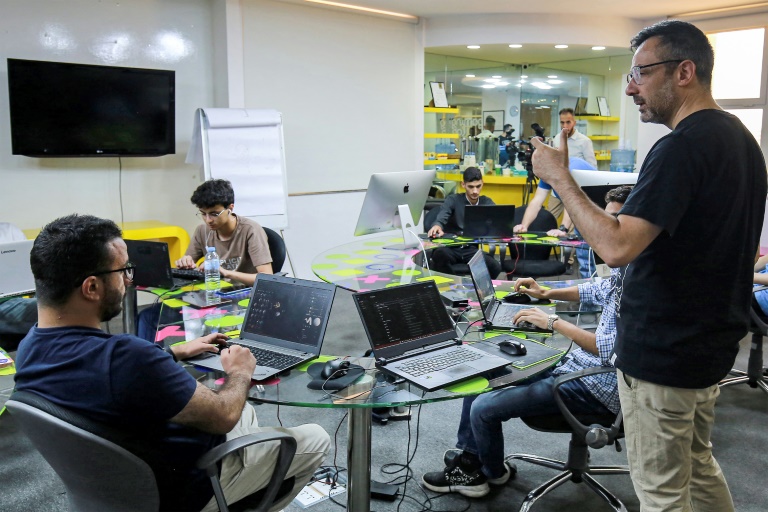For many, gaming is a waste of time. Hours lost staring at glowing screens. But Jordan is betting on its youth to capture a slice of a lucrative global market.
At the Jordan Gaming Lab, Nasser Kasabreh, 21, sits behind his computer, working on a game he has been developing over the past months.
He and two friends have already designed three video games including “Drift Arabs”, downloaded on Google Play more than 100,000 times. But he confides “our ambition is still much greater than this”.
Set up in 2011, the lab aims to help young people develop and design their own games.
With the support of the King Abdullah II Fund For Development, it provides modern equipment and free educational courses to young people aged nine and above on all aspects of the gaming industry from manufacturing, to production, and even marketing.
The Fund would not disclose how much money has been spent over the years, but it represents a significant investment by the Hashemite kingdom in its young people.
More than 10,000 youngsters have benefited from the training, as Jordan seeks to tap into a global video game industry worth around $300 billion, according to industry specialists Accenture.
Expectations are the market will only grow with the development of cloud gaming, still in its early stages, and even virtual reality.
– Challenging stereotypes –
Half of the population of Jordan is estimated to be under the age of 25 and according to the World Bank unemployment runs at about 23 percent.
“This lab has completely changed society’s idea about electronic games. Twenty years ago, I found it difficult to convince young people or their parents of the importance of making these games, today it is totally different,” said entrepreneur and the lab’s technical partner, Nour Khrais.
But Arab game-makers face a huge challenge.
“International games introduce Arabs in evil roles or as bad persons. Our youth today are developing games to change this image,” Khrais told AFP.
Mobile gaming is the fastest-growing gaming sector in the world — and of all the digital games produced in the region, Jordan produces more than half, Khrais said.
In a sign of the growing importance of the Middle East gaming market, the latest edition of the hugely-popular “Assassin’s Creed” franchise released last month was set in 9th-century Baghdad and for the first time had Arabic subtitles.
“Jordan has today become the most experienced country in electronic games in the Middle East,” said Hussein Bino, the Fund’s gaming lab coordinator.
– ‘Great future’ –
There are now more than 12 game publishing and developing companies in Jordan, including the first mobile games development studio Maysalward — founded 20 years ago by Khrais — which now has more than 100 games on Apple Store and Google Play.
Most companies have international tie-ups with some of the biggest names in the industry, and Jordan’s success has drawn other Arab countries to “invest tens of millions of dollars in our very active market”, said Khrais.
There is even a Jordanian union with 10,000 members and a bus service that travels to “reach young people in remote areas”, said Khrais, who was awarded the title of “Mobile Legend” at the 2023 Mobile Games Award in London.
He dismissed the idea that electronic games were only for entertainment.
“It is true that it increases happiness hormones, but we are talking about … a technology with huge revenues that exceeded $220 billion globally and about $8 billion in the Arab world.”
A fan of action games such as “Call of Duty”, Yousef Alrayyan, 18, has just finished high school and hopes to study computer technology and artificial intelligence.
“My parents used to tell me that games are a waste of time, but today things are different. They encourage me and tell me: This is an important industry like artificial intelligence, and it has a great future,” he said.
Global revenues from gaming are now higher than the film industry, said Bino. “We want to benefit from this growth.”

 Business5 months ago
Business5 months ago
 Business4 months ago
Business4 months ago
 Events3 months ago
Events3 months ago
 People4 months ago
People4 months ago
 Events6 months ago
Events6 months ago
















